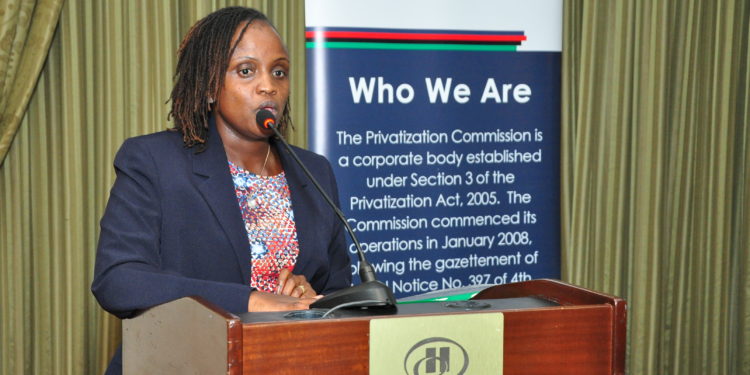The Privatization Commission has been prepping close to 26 state-owned companies for privatization for more than seven years, including sugar millers and Agro-Chemical and Food companies, yet, since its establishment, the Commission has only finished Phase One of Kenya Wines Agencies (KWAL)Ltd.’s privatization, which involved selling 26% of the business’s shares to Distell from South Africa. Cabinet approved the deal in November 2011 while Parliament approved it in January 2013.
An audit of the Privatization Commission’s effective performance of its mandate, from public records, reveals that, despite continuous Government Funding, there is little success to show in terms of results.
For example, During the 2015–16 fiscal year, 11 board members of the Privatization Commission met to discuss matters related to the privatization of government-owned enterprises. The board members received approximately KSh11.3 million as sitting allowances, and other expenses, including travel allowances, in exchange for their effort.
The Commission paid its staff KSh104 million in basic pay during the same period, in addition to various benefits like commuter allowances, leave allowances, and gratuities, with senior executives of the Commission receiving more than 60% of this.
Read: Zimbabwe Commissions Ksh3 Billion Medicinal Cannabis Farm
The commission barely produced anything throughout the fiscal year, despite expenditures and reasonably adequate funding from the government.
Taxpayers had been forking out millions of shillings to rescue the ailing State corporations as the Treasury dragged its feet in appointing replacements, after the expiry of the term of the former members of the commission, even after the commission’s failure to conclude a single transaction for close to 12 years since it was operationalized on January 1, 2008.
According to a 2020 Auditor-General report by Nancy Gathungu, the commission underspent its budget by KSh594 million, spending KSh290 million instead of the permitted KSh896 million. In essence, this indicates that 66 percent of the commission’s work for that fiscal year was probably unfinished.
This begs the question of what use is the Privatization commission.
Failed Privatization Attempts
Francis Wangara, secretary general of the Kenya Union of Sugar Plantation and Allied Workers (Kuspaw)filed an injunction stating that the businesses owed employees about KSh6 billion in unpaid wages, threatening court action to stop the privatization of the state-owned sugar mills.(sony, Nzoia, chemelil, Miwani, Muhoroni)
Another failed attempt includes the Privatization of the Kenya Meat Commission which was later transferred to the Kenya defence forces by former President Uhuru Kenyatta in 2020, in an effort to strengthen operations and ensure survival.
The government had earlier declared that it will start the sale of KMC in June 2020, to a potential investor while also investing KSh80 million in its upgrade during the upcoming fiscal year, after establishing a task force to develop a privatization plan.
The Treasury had provided the funds for the Athi River-based meat processor’s renovation for the second year in a row. The plant upgrade cost the State Department for Livestock KSh80 million out of the KSh190 million that the government had budgeted for it during the previous fiscal year.
The privatization commission in their defense attributed these failed privatization attempts to the inadequate composition of its members in the period under review, in addition to complexities that come with being government-run.
Among other factors, included the need to hold extensive public consultations resulting in delays in obtaining approvals at various government levels for the privatization proposals.
Read:ODPP Makes U-Turn In Lenolkulal Ksh. 84 M Graft Case After LSK Outburst
However, in an effort to revive the commission, President William Ruto recently supported the privatization of 10 State Corporations including the stalled(sony, Nzoia, chemelil, Miwani, Muhoroni, and KMC)in order to produce additional funds for the government.
Privatization is intended to include the selling of government enterprises to the public through initial public offerings (IPOs), as well as additional disposal of assets from state-run firms that are already listed on the Nairobi Securities Exchange (NSE).
Privatization would be a win-win situation because the government would get access to critical financing, with the Public Budget Office (PBO) projecting billions for the exchequer through mergers in company holdings.
NSE Chairman Kiprono Kittony stated that the NSE is a fantastic source of funding for the government, eliminating the overreliance on expensive foreign loans that have increased the country’s public debt to Ksh 8.6 Billion.
The Privatization Act requires that privatization transactions to be implemented by the Commission be approved at two main stages:
- Approval of the Privatization Programme and its gazettement
- Approval of detailed privatization proposals prepared by the Privatization Commission for each of the assets or operations included in the Programme.
The Act also requires that the Minister for Finance presents a report on the privatization proposals approved by the Cabinet, to the relevant Committee of Parliament.
All this notwithstanding, there appears to be optimism for the privatization commission with the implementation of new reforms.
Email your news TIPS to editor@thesharpdaily.com















